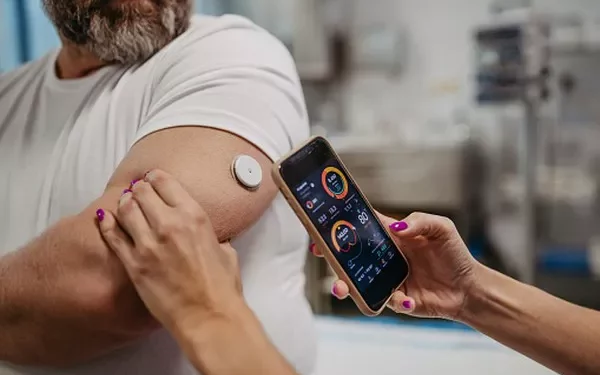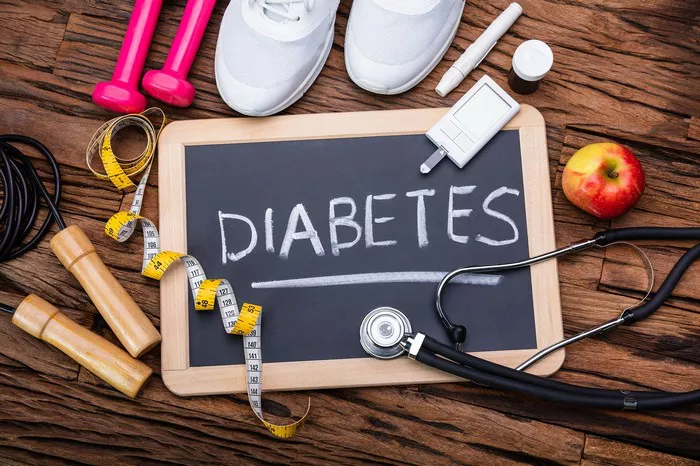Understanding Type 2 Diabetes
Before diving into management and reversal strategies, it’s essential to understand the fundamental mechanisms behind type 2 diabetes. The condition occurs when the body becomes resistant to insulin or when the pancreas fails to produce enough insulin. Insulin is a hormone that helps glucose enter cells to be used for energy. When this process is disrupted, glucose accumulates in the bloodstream, leading to hyperglycemia.
Risk factors for type 2 diabetes include:
- Genetics: Family history of diabetes can increase risk.
- Obesity: Excess fat, particularly around the abdomen, is a significant risk factor.
- Sedentary Lifestyle: Physical inactivity can contribute to insulin resistance.
- Poor Diet: High intake of processed foods, sugars, and unhealthy fats.
- Age: Risk increases with age, particularly after 45.
- Ethnicity: Certain ethnic groups are at higher risk.
- Medical Conditions: Conditions such as hypertension and high cholesterol.
Understanding these risk factors is crucial in developing a targeted approach to managing and potentially reversing the disease.
Dietary Modifications
One of the most impactful strategies for managing type 2 diabetes is dietary modification. A balanced, nutrient-rich diet can help control blood sugar levels, promote weight loss, and improve overall health.
1. Embrace a Low-Carb or Ketogenic Diet
Low-carb and ketogenic diets have gained popularity for their potential to significantly lower blood glucose levels and improve insulin sensitivity. These diets focus on reducing carbohydrate intake, which is replaced with healthy fats and adequate protein. By minimizing carbohydrate consumption, the body’s need for insulin decreases, allowing blood sugar levels to stabilize.
2. Prioritize Whole Foods
Whole foods, such as vegetables, fruits, lean proteins, and whole grains, should form the foundation of your diet. These foods are rich in fiber, vitamins, and minerals, which are essential for overall health. Fiber, in particular, helps slow the absorption of glucose into the bloodstream, preventing spikes in blood sugar levels.
3. Monitor Glycemic Index (GI) and Glycemic Load (GL)
Understanding the glycemic index and glycemic load of foods can help manage blood sugar levels. Foods with a low GI cause slower, more gradual increases in blood glucose, while high-GI foods lead to rapid spikes. Incorporating low-GI foods such as legumes, non-starchy vegetables, and whole grains can be beneficial.
4. Practice Portion Control
Overeating, even healthy foods, can lead to weight gain and elevated blood sugar levels. Practicing portion control helps manage calorie intake and prevents excessive spikes in blood glucose. Using smaller plates, measuring portions, and being mindful of hunger cues can aid in this practice.
5. Include Healthy Fats
Incorporating healthy fats into your diet can improve insulin sensitivity and provide long-lasting energy. Sources of healthy fats include avocados, nuts, seeds, olive oil, and fatty fish. These fats also promote satiety, reducing the likelihood of overeating.
6. Limit Added Sugars and Refined Carbohydrates
Added sugars and refined carbohydrates can cause rapid increases in blood glucose levels and contribute to insulin resistance. Reducing the intake of sugary beverages, sweets, and processed foods is crucial in managing diabetes.
7. Stay Hydrated
Adequate hydration is vital for maintaining healthy blood sugar levels. Water is the best choice for hydration, as sugary drinks and beverages with artificial sweeteners can negatively impact blood glucose.
Regular Physical Activity
Physical activity plays a critical role in managing and potentially reversing type 2 diabetes. Exercise helps improve insulin sensitivity, promotes weight loss, and enhances overall cardiovascular health.
1. Aerobic Exercise
Aerobic exercises, such as walking, cycling, swimming, and running, can significantly improve cardiovascular health and insulin sensitivity. Aim for at least 150 minutes of moderate-intensity aerobic exercise per week, spread across several days.
2. Strength Training
Strength training exercises, such as weightlifting or resistance band workouts, help build muscle mass and improve insulin sensitivity. Incorporating strength training at least two days per week can enhance glucose metabolism.
3. High-Intensity Interval Training (HIIT)
HIIT involves short bursts of intense exercise followed by periods of rest or low-intensity exercise. This type of workout has been shown to improve insulin sensitivity and cardiovascular health in a shorter amount of time compared to traditional exercise.
4. Incorporate Movement into Daily Routine
In addition to structured exercise, incorporating more movement into daily activities can benefit blood sugar management. Activities like taking the stairs, walking during breaks, and performing household chores all contribute to increased physical activity.
Weight Management
Achieving and maintaining a healthy weight is crucial for managing type 2 diabetes. Excess body fat, particularly around the abdomen, is closely linked to insulin resistance.
1. Set Realistic Goals
Setting realistic and achievable weight loss goals is important for long-term success. Aim for a gradual weight loss of 1-2 pounds per week through a combination of dietary changes and physical activity.
2. Seek Professional Support
Working with healthcare professionals, such as dietitians, endocrinologists, and diabetes educators, can provide personalized guidance and support. These professionals can help develop a tailored plan that fits individual needs and preferences.
3. Monitor Progress
Regularly monitoring weight, blood sugar levels, and other health markers can help track progress and make necessary adjustments. Keeping a food and activity diary can provide insights into habits and patterns.
4. Address Emotional and Behavioral Factors
Emotional and behavioral factors, such as stress, emotional eating, and lack of motivation, can impact weight management. Addressing these factors through strategies like stress management techniques, counseling, and support groups can enhance success.
Medication and Medical Interventions
In some cases, lifestyle modifications alone may not be sufficient to manage type 2 diabetes. Medications and medical interventions can play a crucial role in controlling blood sugar levels and preventing complications.
1. Oral Medications
Several types of oral medications are available to help manage blood sugar levels in type 2 diabetes. These include metformin, sulfonylureas, DPP-4 inhibitors, and SGLT2 inhibitors. Each medication works differently, and a healthcare provider can determine the most appropriate option based on individual needs.
2. Injectable Medications
In addition to insulin, other injectable medications such as GLP-1 receptor agonists can help manage blood sugar levels. These medications work by enhancing insulin secretion, slowing gastric emptying, and promoting satiety.
3. Insulin Therapy
For some individuals, insulin therapy may be necessary to manage blood sugar levels effectively. Various types of insulin are available, including rapid-acting, long-acting, and intermediate-acting formulations. Insulin therapy is tailored to each individual’s needs and can be adjusted over time.
4. Bariatric Surgery
Bariatric surgery may be considered for individuals with severe obesity and type 2 diabetes who have not achieved adequate control with lifestyle modifications and medications. Procedures such as gastric bypass and sleeve gastrectomy can lead to significant weight loss and improvements in blood sugar levels.
Regular Monitoring and Health Checkups
Regular monitoring of blood sugar levels and health checkups are essential components of managing type 2 diabetes. Consistent monitoring helps track progress, identify trends, and make necessary adjustments to treatment plans.
1. Blood Glucose Monitoring
Frequent monitoring of blood glucose levels provides valuable information on how diet, exercise, and medications affect blood sugar. Depending on the treatment plan, individuals may need to check their blood sugar multiple times a day.
2. A1C Testing
The A1C test measures average blood glucose levels over the past two to three months. This test provides a comprehensive picture of overall blood sugar control and helps guide treatment decisions. The goal for most individuals with diabetes is an A1C level below 7%.
3. Regular Health Screenings
Routine health screenings, including blood pressure, cholesterol levels, kidney function, and eye exams, are crucial for detecting and managing potential complications of diabetes. Early detection and intervention can prevent or delay the progression of complications.
4. Foot Care
Diabetes can lead to nerve damage and poor circulation, increasing the risk of foot problems. Regular foot care, including daily inspections, proper footwear, and prompt treatment of any injuries or infections, is essential for preventing serious complications.
Addressing Mental and Emotional Health
Living with type 2 diabetes can be challenging and may impact mental and emotional well-being. Addressing these aspects is crucial for overall health and successful diabetes management.
1. Stress Management
Chronic stress can negatively affect blood sugar levels and overall health. Implementing stress management techniques such as mindfulness, meditation, deep breathing exercises, and physical activity can help reduce stress and improve diabetes management.
2. Mental Health Support
Seeking support from mental health professionals, such as psychologists or counselors, can help address issues like depression, anxiety, and diabetes-related distress. Support groups and peer networks can also provide valuable emotional support and practical advice.
3. Develop a Support System
Having a strong support system of family, friends, and healthcare professionals can make a significant difference in managing diabetes. Supportive relationships can provide encouragement, accountability, and assistance in adheringto treatment plans.
Potential for Diabetes Remission
While type 2 diabetes is often considered a chronic and progressive condition, emerging research suggests that remission is possible, particularly through intensive lifestyle changes and early intervention. Diabetes remission is defined as achieving and maintaining normal blood glucose levels without the need for medication.
1. Intensive Lifestyle Interventions
Intensive lifestyle interventions, such as those implemented in clinical trials like the Diabetes Remission Clinical Trial (DiRECT), have shown promising results in achieving remission. These interventions typically include a low-calorie diet, increased physical activity, and structured support.
2. Weight Loss
Significant weight loss, particularly through diet and exercise, is strongly associated with diabetes remission. Losing at least 10-15% of body weight can lead to improvements in insulin sensitivity and beta-cell function, potentially resulting in remission.
3. Early Diagnosis and Intervention
The sooner type 2 diabetes is diagnosed and managed, the better the chances of achieving remission. Early intervention allows for more effective lifestyle changes and can prevent the condition from progressing.
4. Personalized Treatment Plans
Individualized treatment plans that consider a person’s unique health status, preferences, and challenges can enhance the likelihood of remission. Working closely with healthcare providers to tailor a plan that addresses specific needs is crucial.
5. Continuous Monitoring and Adjustment
Achieving and maintaining remission requires ongoing monitoring and adjustments to the treatment plan. Regular follow-ups with healthcare providers and consistent self-monitoring of blood glucose levels are essential.
Embracing Technology in Diabetes Management
Advancements in technology have revolutionized diabetes management, offering tools that can help individuals monitor and control their condition more effectively.
1. Continuous Glucose Monitors (CGMs)
CGMs provide real-time glucose readings throughout the day and night, offering valuable insights into blood sugar trends and patterns. These devices can help individuals make informed decisions about diet, exercise, and medication.
2. Insulin Pumps
Insulin pumps deliver continuous insulin infusion, mimicking the body’s natural insulin release. These devices offer greater flexibility and control over blood sugar levels compared to traditional insulin injections.
3. Mobile Apps and Online Platforms
Various mobile apps and online platforms are available to help individuals track their blood sugar levels, diet, exercise, and medications. These tools can provide reminders, educational resources, and support for managing diabetes.
4. Telehealth Services
Telehealth services allow individuals to consult with healthcare providers remotely, making it easier to access care and support. This can be particularly beneficial for those with mobility issues or those living in remote areas.
See also: What Are Signs Of Type 2 Diabetes In Feet?
Conclusion
Managing and potentially reversing type 2 diabetes involves a multifaceted approach that includes dietary modifications, regular physical activity, weight management, medication, and medical interventions, as well as addressing mental and emotional health. While remission may not be possible for everyone, significant improvements in health and quality of life can be achieved through diligent self-care and support from healthcare professionals.
By understanding the condition and implementing a comprehensive management plan, individuals with type 2 diabetes can take control of their health and work towards a future with improved blood sugar levels and reduced complications. Consistency, education, and support are key elements in this journey, empowering individuals to make informed decisions and maintain a healthy lifestyle.
Related topics:
What Is The Latest Drug For Diabetes?



























